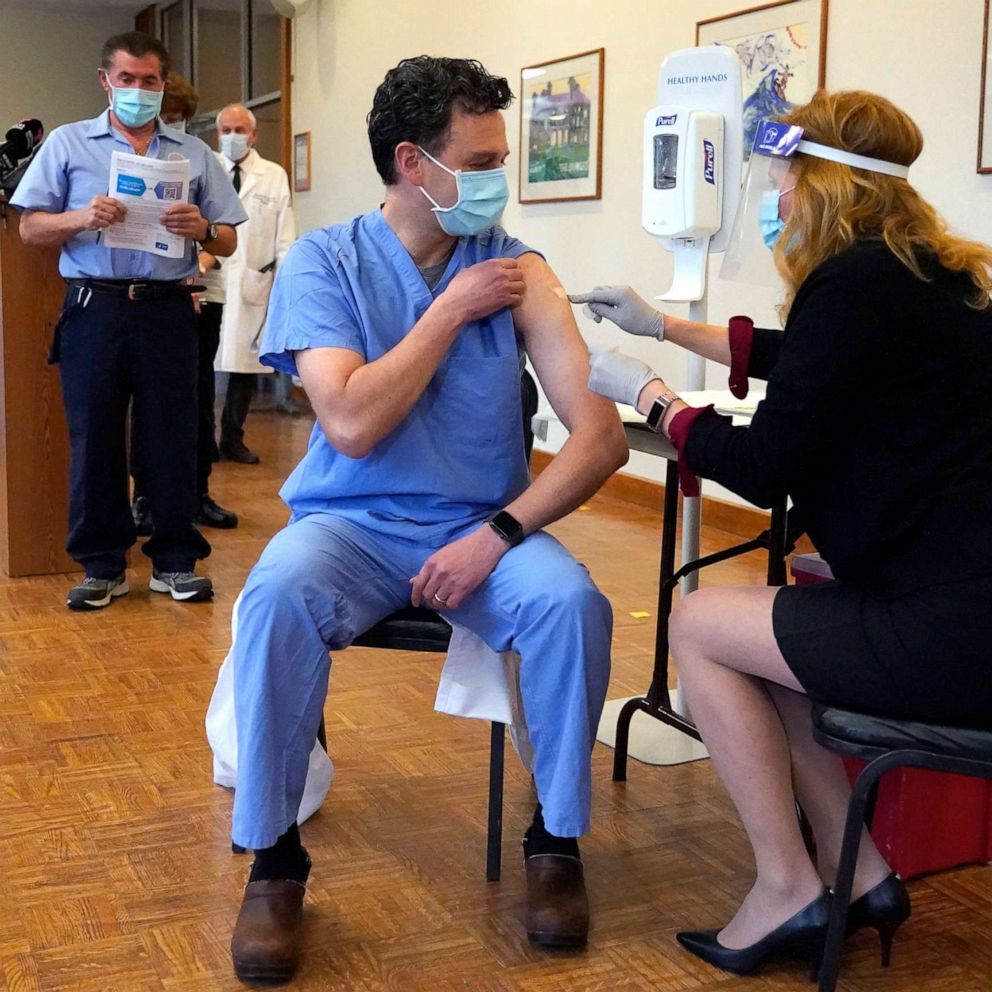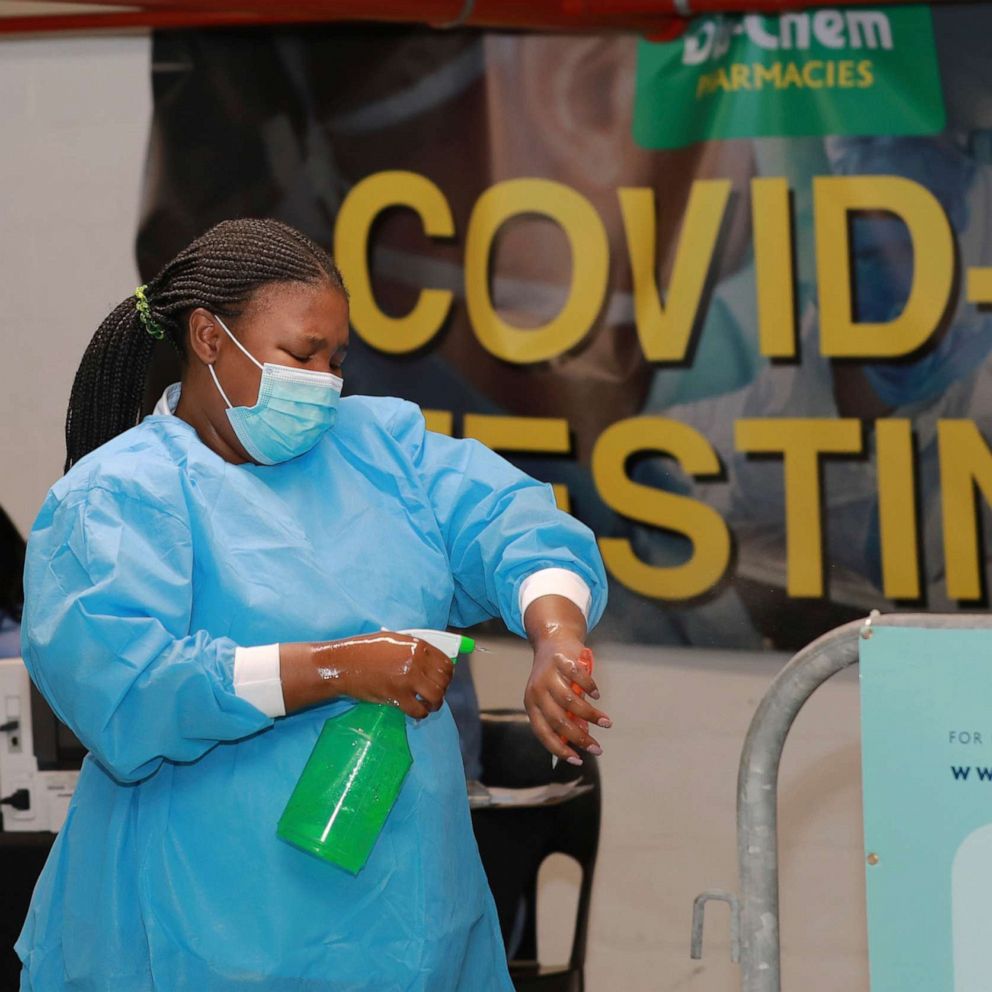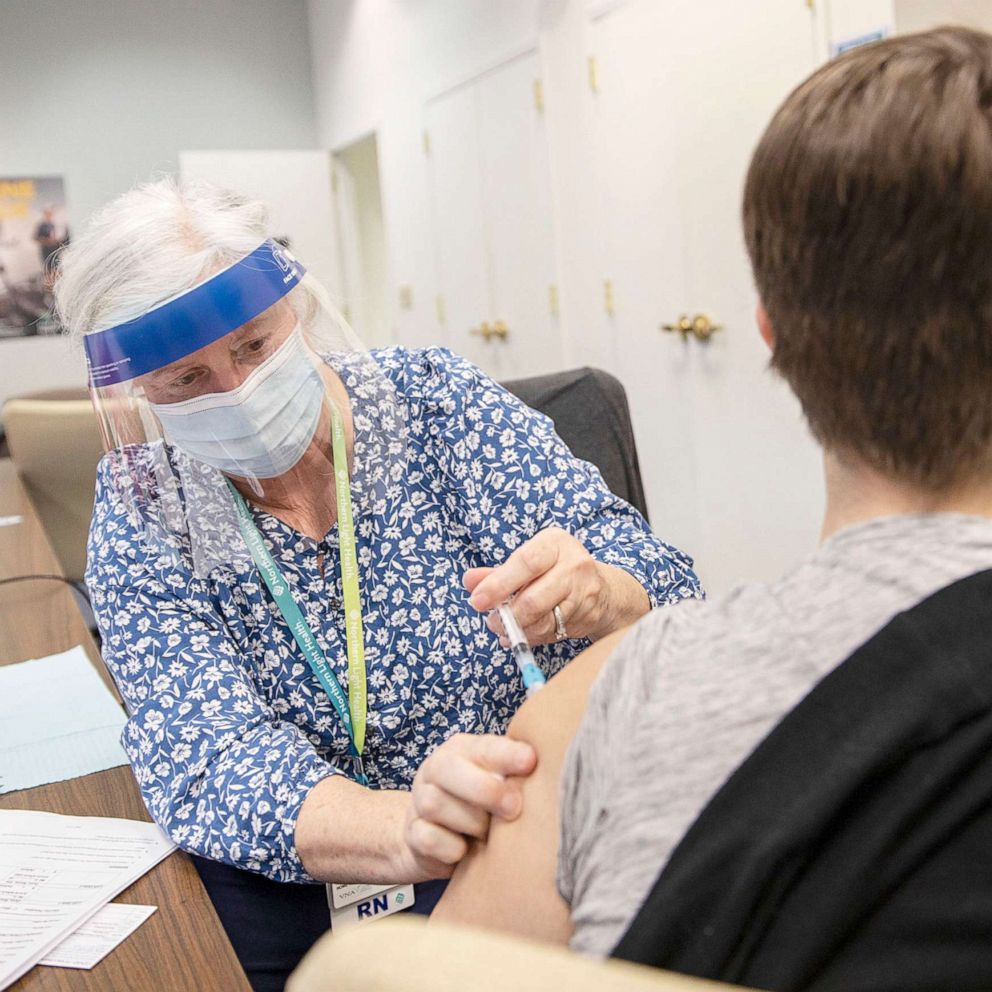What happens after you're vaccinated for COVID-19
The return to normalcy after vaccination will be slow, experts say.
With priority groups like front-line workers and doctors receiving their second doses of the COVID-19 vaccine, and the prospect of vaccination for the general population on the horizon, many Americans may be wondering: What happens after I get vaccinated?
The two-dose Pfizer and Moderna vaccines are more than 94% effective and it typically takes a few weeks for the body to build immunity after receiving the second dose, according to the Centers for Disease Control and Prevention.
While one dose offers partial protection in 50%-60% effective range, efficacy after one dose has been less carefully studied, according to Dr. William Schaffner, professor of preventive medicine and infectious diseases at Vanderbilt University Medical Center. "One dose makes you feel somewhat better, but it shouldn’t alter your careful behavior," Schaffner said.
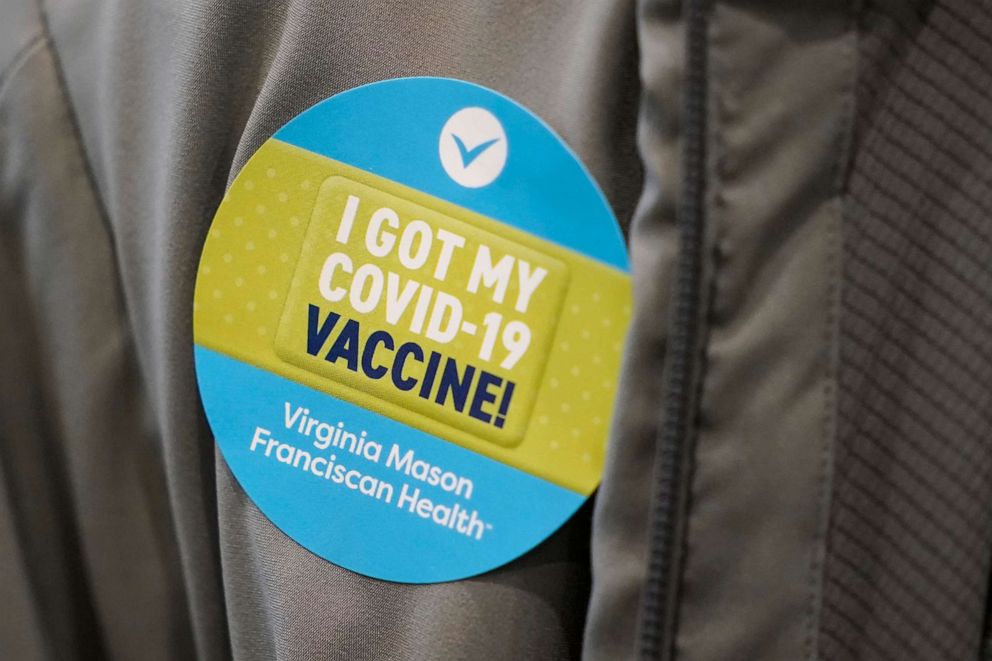
"I suspect two doses will also give longer immunity," added Dr. Michael Merson, a professor of global health at Duke University and senior scholar at the CUNY School of Public Health and Health Policy.
So one dose is good, two doses are better. But what happens after you're fully vaccinated?
The short answer: Your behavior shouldn't dramatically change, especially in the early days of vaccination in United States.
"As our vaccination program rolls out, it will be enormously helpful and a powerful addition to all of our interventions," Schaffner said. "But we can’t give up the tried and true, particularly because we’re getting new strains that are highly contagious." Interventions like masks and social distancing will still be key ways to protect against those newer variants, Schaffner noted.
"Our return to 'normal' life after vaccination is going to be gradual," Merson said. "It will not be like opening and closing a book or turning on or off a light switch. And how fast this will happen is going to depend how quickly we vaccinate the population and reach herd immunity."
Until then, here's what you can expect after getting vaccinated:
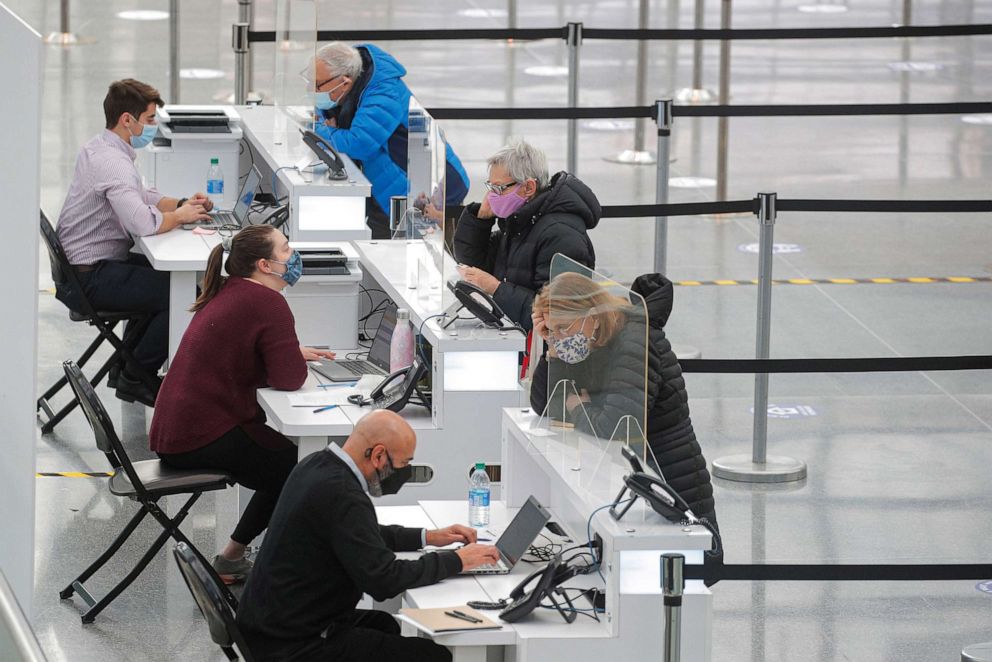
Do I have to keep social distancing?
"The answer is distinctly yes," Schaffner said.
There are a few reasons for this. First, since the Pfizer and Moderna vaccines are roughly 95% effective, there's a 5% gap -- meaning there's a small chance you could still become infected. Second, clinical trials were set up to determine whether the vaccines could prevent serious disease and death. They weren't designed to study whether vaccinated people could contract the virus and remain asymptomatic while spreading to others.
"We don’t yet know how much the mRNA vaccines prevent asymptomatic infection and thus block transmission of the coronavirus," Merson said.
"For the time being, vaccinated people should continue to wear masks, social distance, etc. Hopefully, we will have this information in six weeks’ time and this could influence our recommendations," he added.
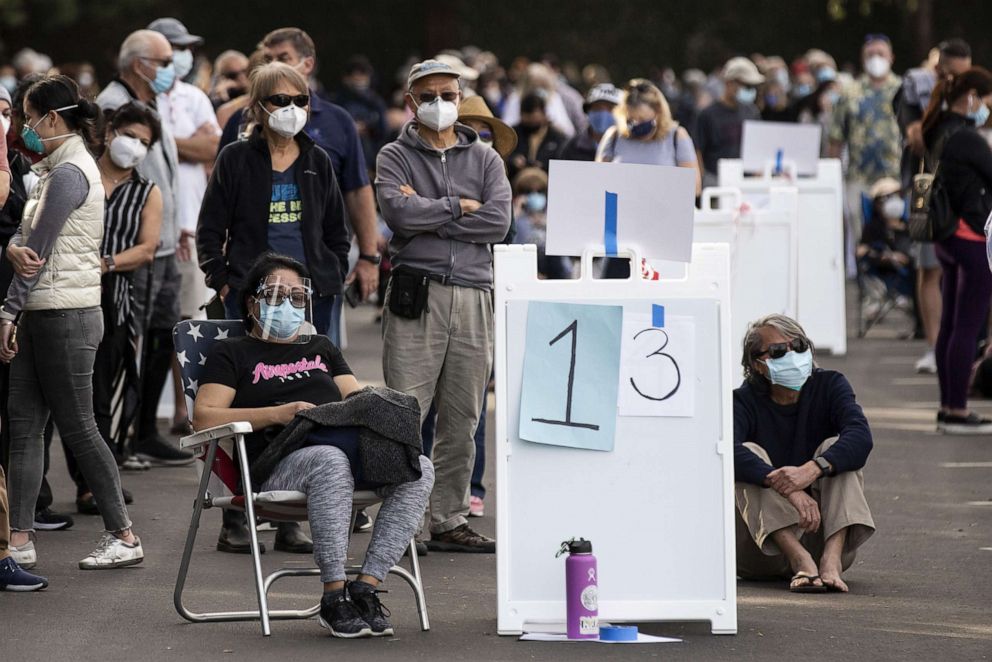
Do I have to wear a mask?
Yes, for the most part.
In addition to the small risk of infection, there are social factors at play, according to Schaffner. Universal mask wearing puts social pressure on people to continue protecting one another by wearing masks. "It's the whole community acting together to defeat COVID," he said. "If some people start not wearing masks, that will encourage the further repose to be not wearing masks."
Merson said that after two doses of the vaccine it would be reasonable to go from wearing a mask all the time to wearing it under certain circumstances, such as in group gatherings. Reaching herd immunity, where enough people have immunity that it affords protection to the rest of the population, will take time, he explained.
"If you are in a vulnerable population group, you may want to proceed more cautiously," he said. "If I were fully vaccinated, I would see my grandchildren, but social distance and wear a mask until there is herd immunity."
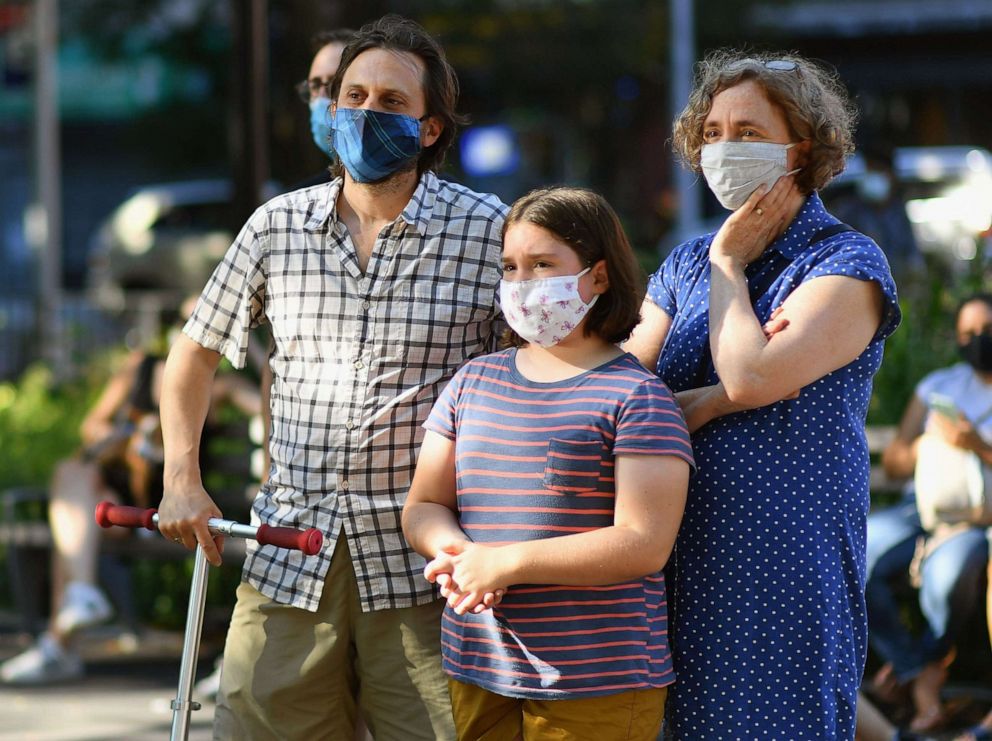
Can I still get COVID or test positive?
Importantly, the vaccine itself will not give you COVID-19. "The vaccines will not give you a positive PCR or antigen COVID test. They can give you a very positive antibody test," Merson said.
As for the very small chance that you contract COVID after receiving two doses of the vaccine, "you can still be infected and become ill but your disease is very likely going to be mild," he said.
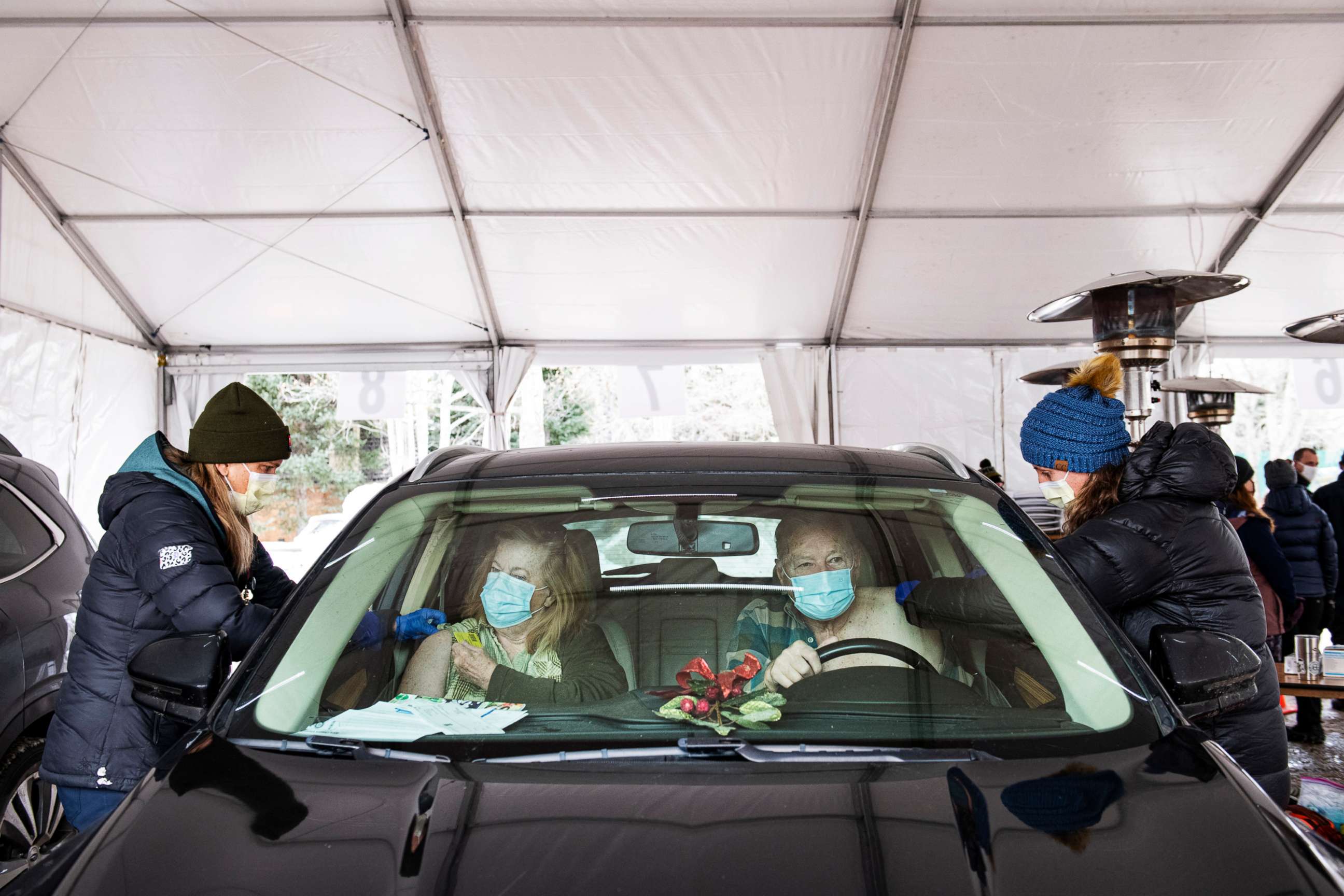
Can I still infect other people?
As mentioned above, we don't know yet, which is part of why you should keep wearing a mask and social distancing after being vaccinated.
"We may change our mind about that as more information comes in," Schaffner said. "At the moment we need to be conservative."
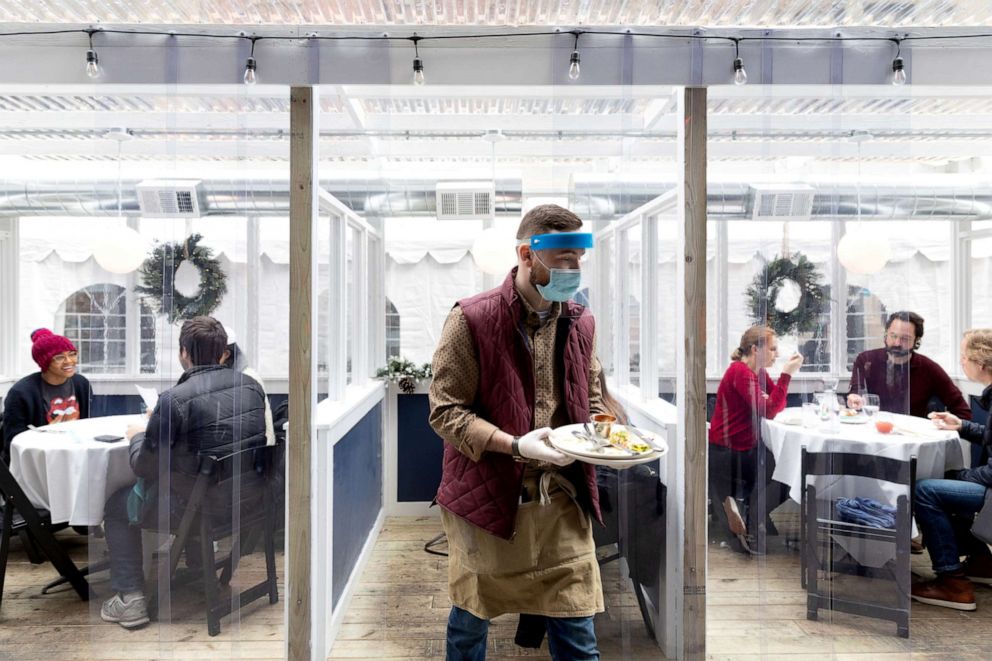
Can I dine indoors? Travel? Hug my grandkids?
It depends.
Your individual circumstances matter. "Are they careful people or are they people who have been rather carefree?" Schaffner asked. If you've been careful, and your grandparents have been vaccinated, you could potentially visit them, Schaffner said. But if you've been carefree and gone to bars, for example, "then you need to be careful, wear the mask and keep it a hug- and kiss-free zone," he said.
"Your grandparents have just gotten vaccinated," Schaffner said. "They didn’t put on a suit of armor. There still is the chance that they could be infected."
Dr. Anthony Fauci, the nation's top infectious disease expert, recommended that vaccinated people avoid traveling for non-essential reasons during CNN's Town Hall meeting Wednesday.
"We don't want people to think because they got vaccinated that other public health recommendations just don't apply," Fauci said. "Getting vaccinated doesn't say I have a free pass to travel nor does it say I have a free pass to put aside all of the public health measures we talk about all the time."
Schaffner and his wife are both fully vaccinated, but they're holding off on dining out with friends until their friends, and the restaurant staff, are vaccinated.
While Schaffner knows many people won't be as careful as he is, he urged Americans to play it safe. "I’ve seen what this virus can do to people, even young healthy people," he said. "There are people who, after mild infection, develop symptoms and become long haulers. That’s really troublesome."
ABC News' Brian Hartman contributed to this report.
What to know about the coronavirus:
- How it started and how to protect yourself: Coronavirus explained
- What to do if you have symptoms: Coronavirus symptoms
- Tracking the spread in the U.S. and worldwide: Coronavirus map
Tune into ABC at 1 p.m. ET and ABC News Live at 4 p.m. ET every weekday for special coverage of the novel coronavirus with the full ABC News team, including the latest news, context and analysis.
